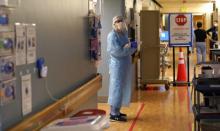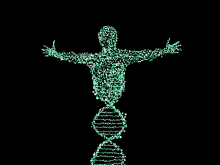Announcements
Children exposed to air pollution before birth—even at levels considered acceptable under regulatory standards—are more likely to have increased blood pressure in early childhood and potentially greater risk of developing cardiovascular diseases as adults, according to new research from the University of Washington School of Public Health and partners. Associate Professor of Biostatistics and MS Capstone Program Director Adam Szpiro is a co-author.
Models that can successfully predict suicides in a general population sample can perform poorly in some racial or ethnic groups, according to a study by Kaiser Permanente researchers published April 28 in JAMA Psychiatry. Yates Coley, KPWHRI researcher and UW Biostatistics faculty member, is the study's first author. Susan Shortreed, who is also a KPWHRI researcher and a UW Biostatistics faculty member, was part of the research team.
Article includes COVID-19 vaccine work by Hutch biostatisticians and UW Biostatistics faculty members Peter Gilbert and Holly Janes.
"Think of the vaccine as a sieve and different variants as pebbles poured into the sieve: the vaccine will block some variants but allow others to pass through, and sieve analysis learns which variants make it through." — Peter Gilbert, biostatistician at the Fred Hutch Vaccine and Infectious Disease and Public Health Sciences Divisions and a UW research professor of biostatistics.
Different races have been found to react differently to certain medical treatments, in part based on an individual’s genetic ancestry. Those genetic health risks are being studied by Dr. Timothy Thornton, a professor, the associate chair of education, and the graduate program director in the department of biostatistics at the University of Washington School of Public Health.
“The WHI has been remarkably productive in pursuing a broad range of scientific questions important to women,” said Garnet Anderson (PhD ’89) director of the Hutch's Public Health Sciences division and principal investigator of the Women’s Health Initiative (WHI) clinical coordinating center. Anderson is also an affiliate professor of biostatistics with the University of Washington School of Public Health.




